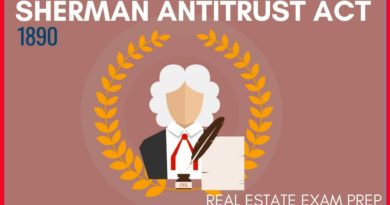Can You Recover Rent Arrears That Accrued Under an Earlier Tenancy?
It’s frustrating when a tenant starts to fall into rent arrears despite your efforts to choose the most reliable people to let your property. Arrears can quickly mount up and soon exceed the value of the tenant’s deposit.
Much of a landlord’s success in recovering rent arrears will depend on whether the tenant is still in the property or has disappeared. However, the law usually permits debt recovery for anything unpaid for the last six years.
Landlords can recover rent arrears from earlier tenancies, but choosing the correct method is crucial. Not all claims are successful, but Helix Law can improve your chances.
What Are My Chances of Recovering Rent Arrears?
If the tenancy is over and the tenant has left the property, you’ll have to be able to find them to pursue the rent arrears. If the tenant has left suddenly and without notice, then the chances of reimbursement may be slim.
You could use tracking or tracing services or specialist agencies to locate individuals. The likelihood of success depends on how much information you can provide. Landlords (or anyone chasing a legitimate unpaid debt) can recover monies accrued up to six years prior. Usually, after six years, any debt is considered time-barred under the ‘statute of limitations’ or the Limitation Act 1980.
How to Use a County Court Judgment to Recover Rent Arrears
Assuming you can locate your former tenant to serve papers if they still refuse to pay, it may be necessary to go to Court and obtain a County Court Judgement (CCJ), which will allow you to enforce the debt. You must issue a Letter Before Action (LBA) and allow the tenant at least fourteen days to defend the claim before obtaining a judgment. If you are a ‘business’ landlord you will need to comply with the Debt Recovery Pre Action Protocol meaning, at least, allowing 30 days for a response and including specific forms including an information sheet and reply form, and seeking a financial statement.
Sometimes, a CCJ or even its threat is enough to encourage a tenant to pay back rent. If your tenant doesn’t pay within 30 days of the CCJ, this will leave a mark on their credit file for six years. There can be value for landlords therefore in taking this approach.
With a CCJ on their credit record, it’s far more difficult for that tenant to obtain a future tenancy elsewhere, other lines of credit, or a mortgage. It also affects insurance policies.
If they still don’t pay after a CCJ, you have the right to enforce the debt.
We have acted in many claims where a landlord will pursue a judgment for two immediate reasons; first, to impact the tenant’s credit rating in the hope if they don’t care now, they will in future. It isnt unusual for a tenant to make contact years later (when seeking a mortgage) offering to pay; second, to ensure other landlords (who often run credit checks as part of any tenant due diligence) identify a tenant who has defaulted and has failed to pay rent to another landlord.
Enforcement With County Court Bailiffs
Where a Judgment has been obtained there can be need to enforce it- i.e. to force payment. The courts do not enforce their own orders- meaning if the order is ignored, you have to.
To enforce a County Court Judgement County Court bailiffs can be used but in practice they are entirely ineffective for money debts.
Technically County Court bailiffs are allowed to enter the tenant’s current home and take any of their possessions, the sale of which would meet the outstanding rent arrears.
However, typically, the devil is in the detail. County Court bailiffs cannot force entry to a property if your tenant refuses them access and rarely will then recover any money or payment. The enforcement officer must contact the tenant before visiting their home to notify them of what will happen. Sometimes this encourages payment. Sometimes it simply tips off the tenant they are coming, and they simply don’t answer or respond.
Bailiffs can only lawfully take the debtor’s possessions, not other residents’ items. These possessions must be free of lease or credit arrangements and wholly owned and paid for by the tenant.
There are fees associated with using Country Court bailiffs. Technically a tenant or judgment debtor will be liable for them, but in practice you pay and then seek to recover, if you can. You may also be able to add your costs, such as storage fees and auction fees for seized items, to the tenant’s debt.
Enforcement With High Court Enforcement Officers
High Court Enforcement Officers perform almost identical roles to County Court bailiffs, except they deal with judgment debts of higher value.
A High Court Sheriff can also enforce a County Court Judgement valued at £600 or more, which is transferred to the High Court for enforcement.
Importantly HCEO’s are self employed. They are more expensive, but they are also much more effective than County Court Bailiffs.
How to Obtain a Charging Order for Rent Arrears
A Charging Order is another way to recover unpaid rent if the tenant owns a property. This is typically the most effective way to pursue a debt such as arrears. A landlord can place a ‘charge’ on that property’s title, registered with Land Registry. Even if the property is jointly owned, the charge can be placed on the debtor’s share.
The charge is for the value of the outstanding rent, and when the property is eventually sold, the money is repaid from the sale proceeds. A landlord must apply to the Court to obtain a Charging Order.
In most cases, a landlord must wait until the tenant voluntarily sells the property to recover their money. However, you can apply to the Court to enforce the Charging Order by obtaining an Order for Sale. We act in many of these types of disputes and claims across the country.
Using an Attachment of Earnings Order
A landlord could opt for an Attachment of Earnings Order if the tenant is in regular employment. The Court orders the tenant’s employer to make regular deductions from the tenant’s salary.
Applying for an Attachment of Earnings Order involves a fee, which the Court usually adds to the rent arrears. The Court evaluates how much the tenant can afford to pay based on their Statement of Means.
The Attachment of Earnings Order is sent to their employer, who makes the deductions at source and sends the money to the Court to pass on to the landlord. The tenant is entitled to retain enough of their earnings to cover living expenses, so recovery of rent arrears can be slow. If the tenant leaves or changes jobs, you’ll have to start the process again with a new employer.
Self-employed tenants are exempt, so you can’t use an Attachment of Earnings Order to recover rent arrears.
What is a Third Party Payment Order
Third Party Payment Orders are helpful as they allow you to access your tenant’s bank or building society account. Third Party Payment Orders also have the element of surprise.
It’s a two-stage process. You apply to the Court for an Interim Order, and the tenant isn’t notified of this to prevent the removal or dissipation of the funds. After the Interim Order, the Court sets a hearing date to issue the final order.
The tenant’s account will be frozen, so they cannot access money, which can prompt payment of the debt.
A Third Party Payment Order also has the benefit of realised funds; you don’t need to sell goods to recoup the money owed.
Can I Deduct Rent Arrears From the Tenancy Deposit?
A landlord can deduct rent arrears from the tenant’s deposit. Some tenants routinely don’t pay the last month’s rent because they fear there will be quibbles over returning it, and they don’t want to lose out.
If the property has dilapidations and damage, using the tenant’s deposit to cover unpaid rent might leave you out of pocket for a significant amount.
Sometimes, the tenancy agreement will restrict what the tenant’s deposit can be used for.
Need Advice? Contact Helix Law.
Rent arrears are a fact of life for most landlords. Choosing the most appropriate way to recover unpaid rent is crucial to maximise the chances of a successful outcome. Professional advice from an experienced legal expert protects your position and will help you recover unpaid rent with the minimum time delay and cost to you.
Contact Helix Law for rapid and specialist advice on recovering rent arrears. We can help even if the arrears are several years old. Our advice is practical and expedient, and we have access to specialists who can trace missing tenants.






